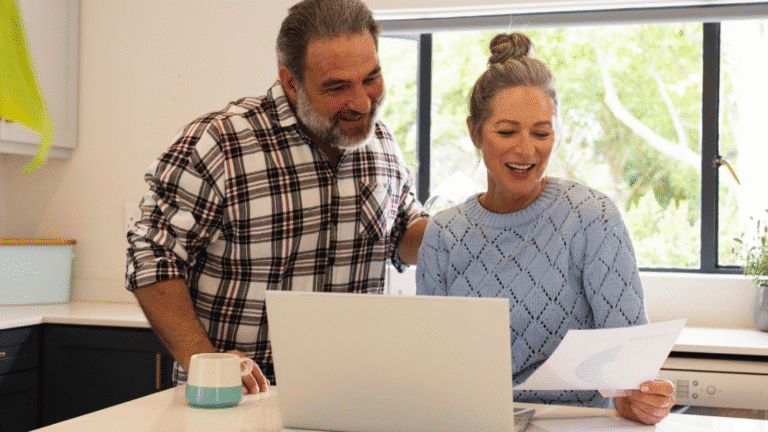You might have heard the old joke about the perpetually optimistic guy who fell from the top of a ten-story building. As he whizzed past an open fifth-floor window, he was heard to say, “So far, so good!”
While such a favorable outlook was likely not, in this case, borne out by the facts, most of us wouldn’t be surprised to hear that people who cultivate attitudes of positivity, and especially gratitude, are generally happier and healthier than those—and we all know them—who seem to always have a storm cloud following them around. And if you’ve never heard this before, you might be interested to learn that there is abundant scientific data to back up the notion. Not only that, but there’s also research demonstrating that persons who are habitually grateful for what they have also tend to be financially healthier. And that can make a big difference in the quality and satisfaction you achieve during your retirement years.
For example, a few years ago, a team of researchers from Northeastern University, the University of California–Riverside, and the Kennedy School at Harvard conducted a study designed to measure how gratitude affected the tendency toward financial impatience. In the study, participants were able to choose between an immediate financial reward or a later, larger payout. But before choosing which they wanted, they were required to write about an event from their past that made them feel grateful, happy, or neutral. Researchers found that participants writing about gratitude-inducing events were statistically more likely to choose the larger, deferred reward. Researchers suggest that fostering gratitude could lead to improvement in negative financial behaviors such as impulse buying and insufficient saving. When you consider the importance of sticking to a budget and exercising other financial disciplines and their implications for a financially secure retirement, it seems evident that this particular benefit conferred by gratitude could make a big difference.
But that’s not all. According to an often-cited study by Dr. Glenn Fox, a researcher at the University of Southern California, persons who are deeply conscious of being grateful for the good things in their lives tend to exhibit several specific markers for good overall health:
- Better sleep
- Consistent exercise
- Less chronic pain
- Less stress
- Lower blood pressure
- Lowered tendencies toward inflammation
Now, we all know that health and the associated medical costs for maintaining it are perennially at the top of the list of concerns for those approaching and in retirement. So, it just makes sense that having more of the markers associated with being a grateful person would tend to promote a healthier, more enjoyable, lifestyle—along with lower expenditures for healthcare and medical issues. After all, no matter how much money you’ve saved for retirement, it’s pretty hard to enjoy yourself when you don’t feel well.
Here are some additional “gratitude-building” suggestions for retired persons from the folks at Waterstone Senior Living Centers:
- Cultivate a positive vision of your future. What are you passionate about? What fascinates you? How can you spend more time occupying yourself with these things? Sure, most of us tend to spend time looking back over our lives, but retirement is also a time to look forward.
- Practice “active gratitude.” Make it a point to not only think about, but also to express the things you’re grateful for. Are you proud of your grandkids? Do you have good neighbors? Did your barista provide an especially delicious cup of coffee this morning? Then say something; write a note; tell somebody.
- Stay connected. One of the strongest correlations with longevity is the quality of community we enjoy, according to author Susan Pinker. In her study of the Italian island of Sardinia—where there are six times more centenarians per 100 people than in the US—she found that the common theme was social connection with family, friends, and even casual acquaintances.
- Never stop trying new things. After all, many retirees are looking forward to having enough time to expand their knowledge and experiences. Use an online app to learn a new language; try out a new hobby; learn to be a better dancer; start writing your memoirs—or a blog.
As we approach the time of year when many Americans take some time to think about what they’re thankful for, it’s a great time to make gratitude a bigger part of your outlook on life. And the great thing is that doing so will not only make you—and likely the people around you—feel better; it just might also give your retirement lifestyle a needed boost.
At The Planning Center, we are dedicated to helping clients prepare for a secure, satisfying retirement lifestyle. We know this involves so much more than financial calculations, portfolio design, analyzing rates of return, or projecting saving and spending rates. While all of these are important, we never forget that your retirement is about you as a whole person, including your emotional wellbeing. As a fiduciary financial planner and wealth advisor, The Planning Center is committed to putting your best interests foremost in all we do. To learn more, visit our website to read our article, “Staying Put: Planning Tips for Aging in Place.”






